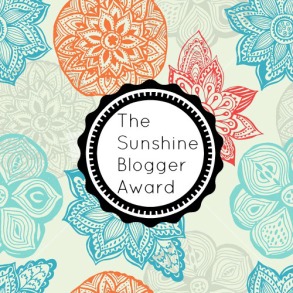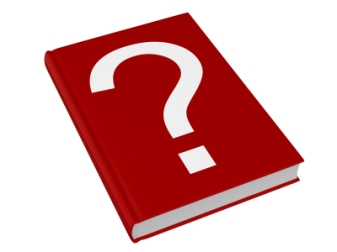Hello, fellow book junkies! Well, I’m enjoying home-cation this weekend while my family’s away, so I’m reading and writing like a nut and now get to answer “Sunshine Blogger Award” questions from one of my favorite bloggers on the planet, Shannon @ Clockwork Bibliophile . Not only does Shannon hail from the #1 place in the world I want to visit (Scotland), she has a very pretty blog with tons of insightful posts about books, and she’s so nice and friendly, too.
Rules
- Thank the people/person who nominated you.
- Answer the questions from your nominators.
- Nominate eleven other bloggers and give them eleven questions.
Shannon’s Questions
- What was the very first book you read? (if you can remember)
I totally did not expect this question. Let’s see. . . I’m pretty sure there was a Mother Goose collection of nursery rhymes pretty early on in my childhood. More than anything, I remember carting around an activity book full of mazes, coloring pages, dot-to-dots, etc. I loved those things. - Why is your favorite genre of books your favorite?
Another good question! My favorite genre of books is YA fantasy because I appreciate great imagination so much, especially magic in all its variations, and I enjoy heights of emotion found in YA stories. I also like watching characters grow, making connections, finding themselves. - If you were to write a book, where would it be set? (place, time period etc)
The stories I write are usually set in some blended version of America and Japan, either in the present day or some mythological past. I’ve set stories in suburban neighborhoods, towns, cities, and often in natural settings like mountains or woods. - Have you ever felt connected to a character because they have experienced something you have?
For sure. I’m too shy to specify the book and character, but in a book I read not that long ago I definitely related to the emotional pain the character suffered. - What is your favorite book-to-movie adaptation?
To Kill a Mockingbird. It’s spot on true to the book. - What is your favorite book-to-tv show adaptation?
Though I haven’t read the actual books–and probably won’t–I think Game of Thrones is pretty spectacular. - What was the last book you read and did you enjoy it?
The last book I read was The First Fifteen Lives of Harry August by Claire North. “Appreciated” might be the most apt word to describe how I felt about reading it. It was a brilliantly written, four-star read. If I’d felt a little more invested in the main character it would have been a five-star book for sure. - What’s your least favorite book that you’ve ever read?
*stall, stall* While I get that he’s a skilled writer, I’m not a big fan of Ernest Hemingway’s minimalist, testosterone-fueled stories. - Who is your favorite blogger and why?
Oh, gosh, there are so many bloggers I adore, for myriad reasons, but I’m going to say Carolyn @ A Hundred Thousand Stories is my favorite blogger because she’s been with me since I first started blogging, she’s taught me so much about YA books, and she makes me laugh. - What’s the prettiest cover on your shelf?
The cover of The Star-Touched Queen catches my eye from across the room all the time. - What is a random fact about you that people might not know?
I speak fluent Japanese.
I Nominate…
Sabrina Marsi
Nazahet @ Read Diverse Books
Michelle, Books and Movie Addict
Dee @ The Bookish Khaleesi
Stephanie @ Your Daughter’s Bookshelf
Astra @ A Stranger’s Guide to Novels
Cristina @ My Tiny Obsessions
My Questions –
I hope I don’t get into trouble with the Sunshine Blogger police but Shannon’s questions were SO GOOD I’m sending them out again to the next round of Sunshine Bloggers.
- What was the very first book you read? (if you can remember)Why is your favorite genre of books your favorite?
- Why is your favorite genre of books your favorite?
- If you were to write a book, where would it be set? (place, time period etc)
- Have you ever felt connected to a character because they have experienced something you have?
- What is your favorite book-to-movie adaptation?
- What is your favorite book-to-tv show adaptation?
- What was the last book you read and did you enjoy it?What’s your least favorite book that you’ve ever read?
- Who is your favorite blogger and why?
- What’s the prettiest cover on your shelf?
- What is a random fact about you that people might not know?




